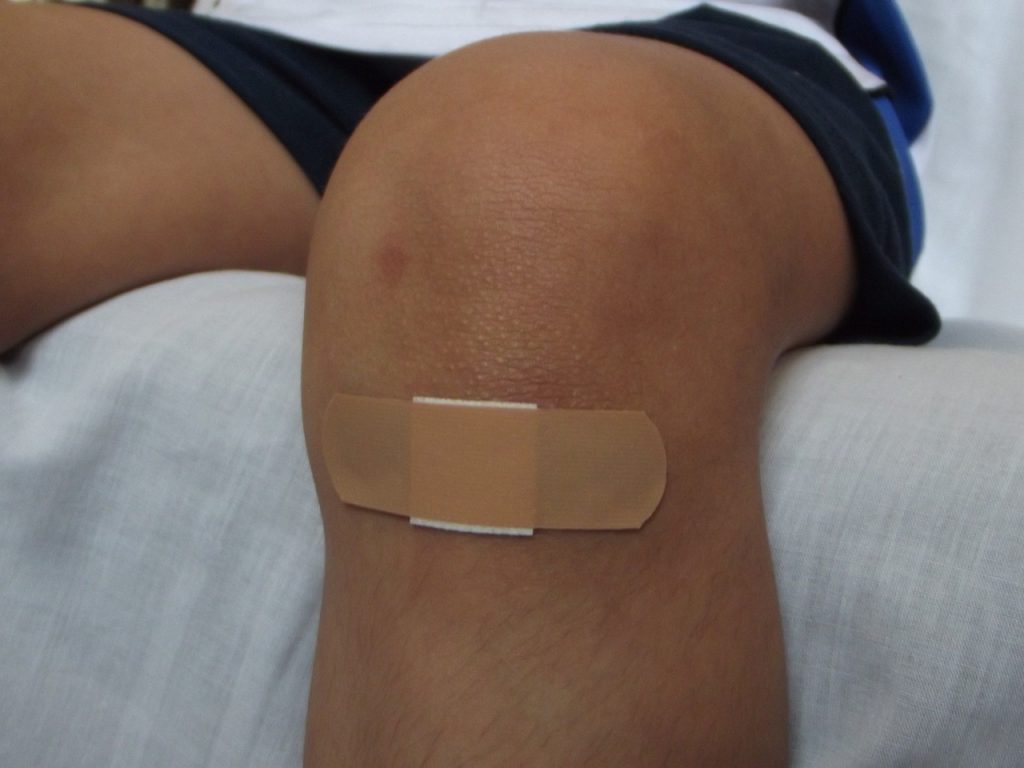We love our outdoor activities! Whether it’s more play time with the kids outside in the yard or hiking adventures in the mountains, Vermonters surely know how to take advantage of fun in the sun. However, have you noticed that this time of year you might find you have more bites, scrapes and stings than any other season? It’s true, the summertime fun surely brings with it a variety of ways to find yourself in your first aid kit wondering, what do I do next? And the classic…should I wrap it up? Here’s some very basic first aid recommendations inspired from the Red Cross (redcross.org/first-aid) and whether or not it’s a wrap.
Bites: Lately it may feel like you can’t be outside without a bite from a mosquito, or worry about bites from ticks, and even spiders. These common summertime bites can cause itching, redness, swelling, and sometimes pain. For minor insect bites, it is recommended to clean the area with soap and water, apply a cold compress to reduce swelling, and use over-the-counter anti-itch creams or antihistamines to alleviate discomfort. Should the bite start to look worse, or start healing and then look worse, you can always reach out to your doctor or visit the walk-in clinic for more help. Is it a wrap? The Red Cross says, “no,” insect bites do not require bandaging unless they are particularly large or painful.
Stings: Bees, wasps, hornets, and other stinging insects are certainly buzzing this time of year. Stings can result in immediate pain, redness, swelling, and in some cases allergic reactions. If stung by a bee or wasp, it is essential to remove the stinger promptly by scraping it off but to avoid squeezing it. Clean the area with soap and water and apply a cold compress to reduce swelling. Should you wrap up a sting? The Red Cross says, “no.” Unless the area starts to show signs of infection, in which you may need more medical attention.
Scrapes: Outdoor activities can lead to scrapes and cuts from falls or accidents or even sliding into home plate during a softball game. No matter how you earned them, all cuts and scrapes need to be thoroughly cleaned with soap and water to prevent infection. You can also apply an antibiotic ointment and cover the scrape with a sterile bandage or dressing to protect it from dirt and bacteria. Should you cover scrapes and cuts? The Red Cross says, “yes.” Once the area is healing and if it is covered with a scab you can start to leave it uncovered.
When to Seek Medical Attention: Most of your summertime bites, stings and scrapes can be treated at home with your basic first aid kit and a good wash of soap and water. Yet, there are times where medical attention is needed. You should consider seeking medical attention any time an area becomes increasingly swollen, painful, or red. If you see a red area, you can draw a circle around it to see if it is increasing. If the wound is starting to develop a warmth or to leak pus, this is also a sign you need extra help. If the injury isn’t improving, or as mentioned before was improving and then starts to get worse, seek extra help. It’s especially important that if you or anyone you know is experiencing symptoms of an allergic reaction such as difficulty breathing or swelling of the lips, eyes and or face, you seek immediate medical care.
Most home care for summer bites, stings, and scrapes will do well with a good clean, cold compress and sometimes an antibacterial ointment. Monitoring your symptoms and signs for infection and/or allergic reaction are also part of the home care for summer booboos. When it comes to wrapping things up? Don’t feel you need to bandage all your wounds too quickly, unless there are specific reasons to keep it covered. You can go back through our list, check out trusted websites like the ones listed above or give the walk-in clinic a visit if you are unsure. But before you spend all summer bandaged up over every scrape and bite, ask yourself, “is it a wrap?”


